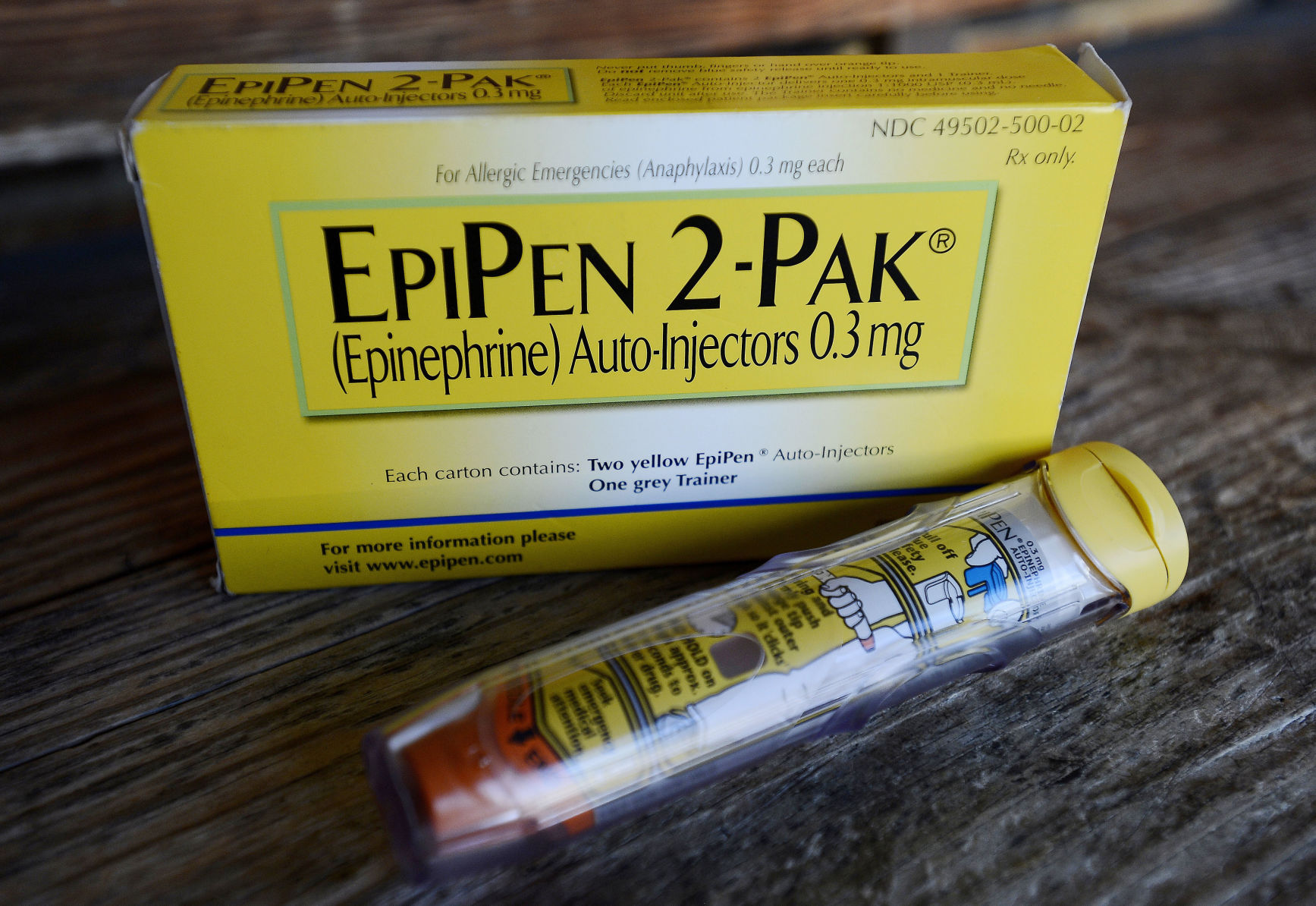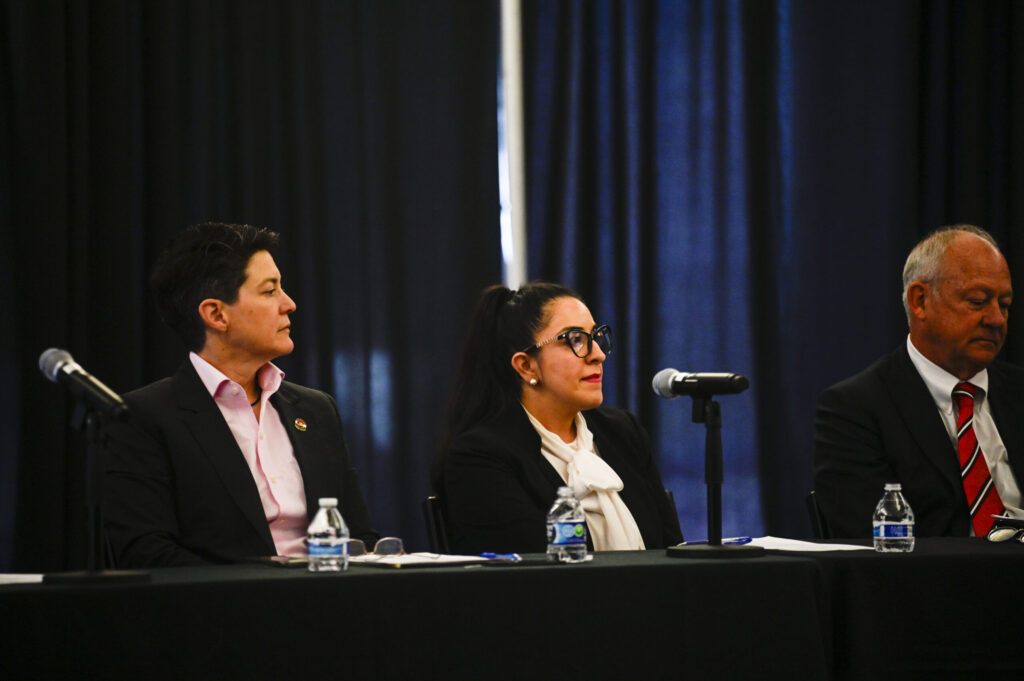Federal judge weighs constitutionality of new Colorado law regulating EpiPen pricing

A federal judge on Monday heard arguments about whether a new Colorado law regulating the affordability of EpiPens and their generic equivalents should be partially blocked because it potentially violates the U.S. Constitution.
In June, Gov. Jared Polis signed a Democratic-backed measure aimed at countering the rising prices of epinephrine auto-injectors, which can save the lives of people undergoing a severe allergic reaction. House Bill 1002 contained two major requirements beginning on Jan. 1, 2024: Capping out-of-pocket costs for insured consumers to $60 for a two-pack of the auto-injectors, and requiring manufacturers to reimburse or resupply pharmacies with the price-controlled devices in some instances.
Teva Pharmaceuticals USA, Inc., which gained approval in 2018 to market the first generic version of the EpiPen, took no issue with the $60 cap for customers, acknowledging Colorado was within its rights to impose a price control through insurance coverage. However, it argued the reimburse-or-resupply program violated its constitutional rights.
Specifically, Teva believes the requirement to effectively provide pharmacies with free product violates the “takings clause” of the Fifth Amendment, which forbids the government from taking private property “for public use, without just compensation.”
Colorado “can impose a tax on the sale of EpiPens and then use that tax in a dedicated fund for people who are uninsured,” attorney Jay P. Lefkowitz argued in court. “They can simply impose a price cap and see what the market forces do. They can subsidize it more broadly in other ways. I guess the state could even decide it wants to enter the generic business and develop its own EpiPen.”
But, he added, “the only thing it can’t do is take this private property, which is clearly for public use, without just compensation.”
U.S. District Court Judge Daniel D. Domenico, who is considering Teva’s request to block part of the law before it takes effect, acknowledged the state’s interest in responding to EpiPen “price gouging.” However, he appeared to share Teva’s concern that the government had enacted a scheme to take its products.
“Here, you’re making one private party give away their property,” he said. “You’re saying to Teva, in this case, ‘In order to help us solve this problem, we’re gonna make you provide your property to someone else.'”
HB 1002 created an auto-injector affordability program for Colorado residents who do not qualify for Medicare or Medicaid and who also do not have private insurance that is subject to the $60 cap for an EpiPen two-pack. In that situation, a pharmacy may charge up to $60, but can then request the manufacturer resupply it with new EpiPens for free. Alternatively, the manufacturer can reimburse the pharmacy for the amount it paid for the EpiPens – minus what the customer paid at the counter.
During this year’s legislative session, lawmakers heard that, while EpiPens cost around $8 to manufacture, the price for uninsured consumers may balloon to upwards of $690. HB 1002 acknowledged that nearly 566,000 Colorado residents have life-threatening food allergies.

The Colorado Attorney General’s Office opposed Teva’s request for an injunction and sought to dismiss the lawsuit altogether. It argued the U.S. Supreme Court has clarified that lawsuits under the takings clause can only be brought when the “taking” occurs. For Teva, that would begin, at the earliest, on Jan. 1, when pharmacists could ask for reimbursement or resupply.
Moreover, Assistant Attorney General Pawan Nelson argued the affordability program is an appropriate exercise of the state’s “police” powers to regulate pharmaceuticals.
“We have laws in this country where hospitals can’t turn away people from emergency rooms based on their lack of ability to pay,” he said. “It’s the same concept we’re talking about here. People shouldn’t be denied access to emergency medicine in an emergency simply because they can’t pay.”
“If a hotel in downtown Denver were emitting some toxic fume, the state could clearly use its police power to tell that hotel, ‘You have to shut down until it’s remedied’,” Lefkowitz responded. The resupply-or-reimburse program, he argued, is more akin to telling the hotel it has to set aside 100 rooms per night for those who are homeless.
Domenico called Nelson’s emergency room example an “interesting analogy.” But even if Teva could not seek an injunction yet in federal court and needed to file suit in state court for compensation once the state has actually begun taking its property, Domenico worried about the ongoing claims Teva would have to file for as long as pharmacists submit requests for resupply or reimbursement.
“It’s different when the state or local government wants to build a road across your property. You sort of know what’s happening there,” he said. “It could be two weeks from now, they suddenly get 200 of these (requests) or they get none for a month.”
Ultimately, Domenico appeared uncertain whether he could intervene before the government has actually taken any of Teva’s property without compensation.
“There is just something different about the takings clause than the Second Amendment and the First Amendment. Those cases involve a prohibition on doing something,” he said. In contrast, Teva is allowed to continue selling its auto-injectors.
“But when they do, they have to hand over some of their property,” he explained. “And there’s something different about that.”
The case is Teva Pharmaceuticals USA, Inc. v. Weiser et al.














